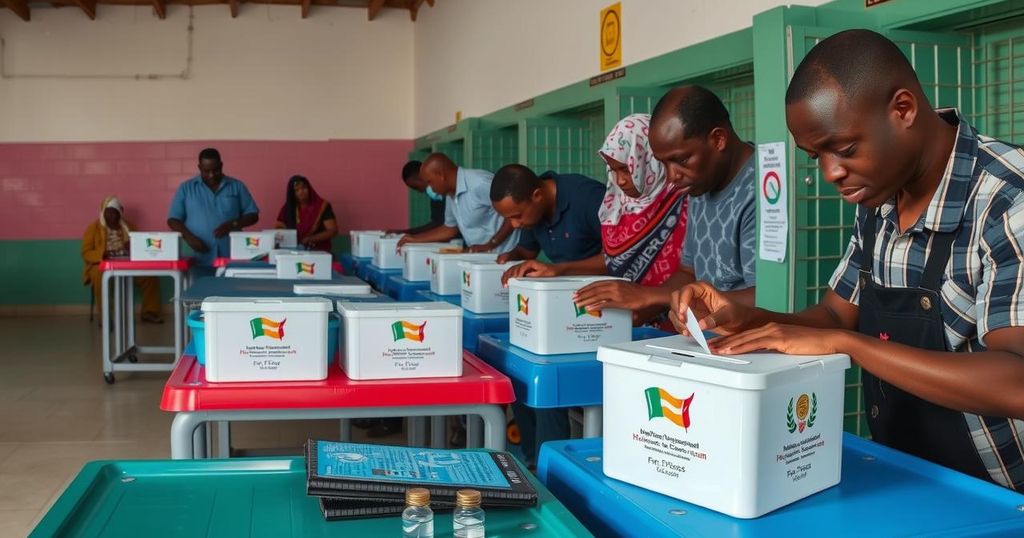Comoros conducted a parliamentary election boycotted by opposition leaders claiming authoritarianism under President Azali Assoumani. With around 330,000 registered voters and expectations of low turnout due to disillusionment with democracy, the election results are awaited next week. The backdrop includes accusations of non-competitive elections and a tense political climate marked by previous tumult and constitutional changes.
Comoros recently conducted a parliamentary election amid a boycott by certain opposition leaders. Accusations of authoritarianism have been directed at President Azali Assoumani and his ruling party, raising skepticism regarding the legitimacy of the electoral process. The election, held on a single day, held significant implications for the 33 legislative seats available, with preliminary results anticipated next week from the national electoral commission.
Registered voters in Comoros number approximately 330,000 from a total population of 850,000, according to the electoral commission; however, opposition claims suggest a projected low voter turnout due to widespread disillusionment with the democratic system. In the prior parliamentary election held in 2020, Assoumani’s party emerged victorious, securing 20 out of 24 contested seats. The opposition criticized the 2020 elections as illegitimate, labeling it a “masquerade.” The reported low voter engagement parallels similar sentiments following Assoumani’s controversial re-election last year, which incited public protests.
The Juwa Party, led by former President Ahmed Abdallah Sambi, opted to boycott the recent vote, having previously abstained from the 2020 parliamentary election as well. Comoros, an archipelago located near Madagascar, has a turbulent political history marked by military coups since gaining independence from France in 1975. Assoumani, who initially seized power as a military officer in 1999, has been in and out of power, having engaged in constitutional revisions enabling him to bypass term limits.
Despite the impending threat from Tropical Cyclone Dikeledi, officials confirmed that the elections would proceed as scheduled. Observers from institutions such as the Africa Center for Strategic Studies noted that Assoumani’s tenure has been increasingly characterized by political oppression and a lack of competitive electoral processes.
The Comoros archipelago has experienced significant political instability since its independence in 1975, including a series of coups. President Azali Assoumani, a former military officer, first assumed power in 1999 after leading a coup. His presidency has been marked by controversial elections and claims of non-democratic governance, with changes in the constitution enabling him to extend his rule without regard to previously established term limits. The political environment is further complicated by boycotts from opposition parties who accuse the government of authoritarian practices, raising doubts about the legitimacy of electoral outcomes and processes. The current election reflects ongoing tensions between the ruling party and dissenting voices within the political landscape.
The parliamentary election in Comoros has highlighted the continuing political strife in the nation, featuring boycotts from opposition parties criticizing the authoritarian tendencies of President Assoumani. Despite a registered voter base of 330,000, low turnout is anticipated due to rampant disillusionment with the political process. The election results will further elucidate the state of democracy within this island nation, which continues to grapple with its legacy of instability and governance challenges.
Original Source: abcnews.go.com







